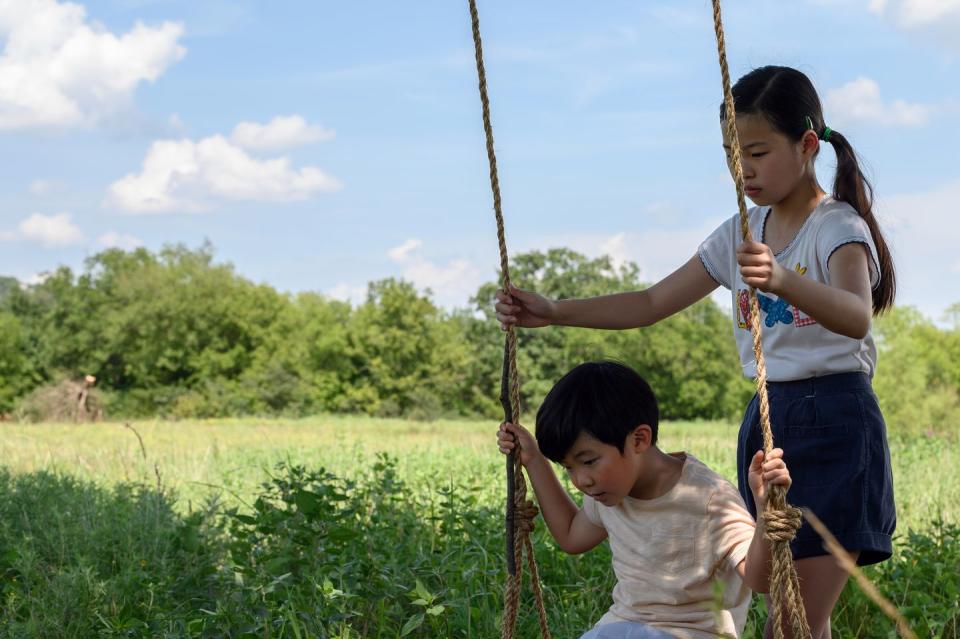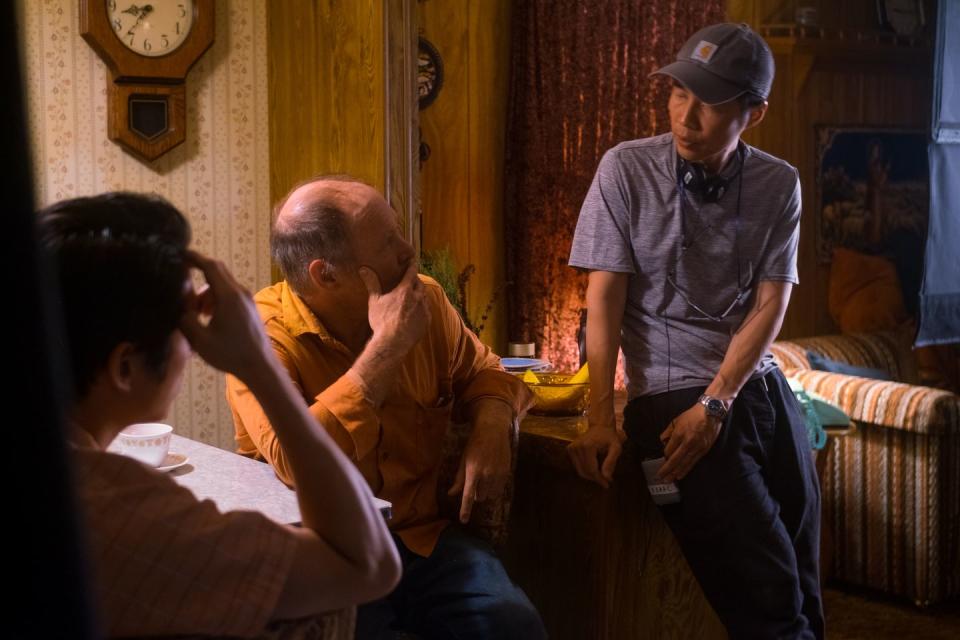Lee Isaac Chung on Burning 'Minari' to the Ground

When Lee Isaac Chung was a boy, a fire on his family's farm in Arkansas burned through half of the fruit trees his father had been growing. As happens in Chung's new film Minari, the fire had been accidentally started by the family's grandmother, but unlike in the dramatisation, he didn't go after her to guide her back to the house.
"I don’t want this to go to a maudlin space but I never did that and I had regrets about it," the director says over Zoom. "That’s one of the elements that I wanted to change that’s fictional. I feel like with film you can redeem things that you wish were different."

Minari is about an Asian-American family who move to rural Arkansas for father Jacob's dream of starting a farm and digging for a better life. The transition is bumpy, not because they are assimilating to America from Korea, but because they are used to a more comfortable American life, and have uprooted themselves to live in a home on wheels in the middle of a field. "Living in the city is better right?" the mother asks the daughter, as they set their own rubbish on fire.
"The film is not taking on the point of view of a family who is desperately trying to become American, and I think that reflects my own experiences and the experiences of many immigrant kids I know," Chung says. "That was part of the fun of this story: looking for moments of nuance in which the characters don't quite fit in what we would expect of them." It is this nuance which has seen the film celebrated as depicting a modern image of American families, and the film earn six Academy Award nominations including for best picture and best director, as well as a historic nod for Steven Yeun as best actor.

Minari shows an immigrant family with contradictions: with Jacob wanting to ignore the traditional American farming technique of dowsing for water and the grandmother dismissing the children as being stupid Americans. In return the children take their wild grandmother to task, saying she "smells like Korea" or criticising her for not being "a real grandma" who bakes cookies. The film's grandmother figure, who watches wrestling in her underwear and sneaks Mountain Dew from the children, is inspired by Chung's own family. "My sister and I thought my grandmother was not very grandmotherly compared to all of the church ladies that we knew," he says. "She was making sure we learned all the Korean swear words, just in case we needed them. Now I see what an awesome lady she was."
Chung sees his grandmother as representative of the people in the margins who silently sacrifice so much to help their family. This is what he thinks underpins the idea of the American dream in a way often is ignored for the narrative of hard work being naturally rewarded with success. "The film is trying to show human lives who are chasing after the dream," he says. "Like how Moby-Dick is about the chase for the whale, it's not necessarily about whether catching that whale is a good idea or not."

In a sense Minari begins again at the ending, with the fire which burns the farm to the ground bringing the family closer together after they have been pulled apart. Chung used the fire to illustrate the idea of refinement, in which "certain things are burned away and there are things that last and are stronger because of it", and also the act of burning as a way to redeem land, symbolising "a burning in the heart that’s happening in this family."
Minari is part history, part redemptive do-over for Chung, shuffling his experiences growing up into a different order so as to give a fictional version of his family a better narrative arc. "My sister felt like I had taken a very difficult moment in our lives and extracted some beauty from it and I think I moved her a lot," Chung says. "Everybody in the family who watched this said they weren’t able to sleep at night because they said they kept thinking about our lives and the farm."

Chung's own grandmother died when he was 16, and in Minari her fate after a stroke is left ambiguous, as she is missing from the final shot in the film.“I had a moment where we see that she’s still alive, before they go off to pick the minari," Chung says of an earlier edit of the film. "But it didn’t feel as true to me as I was watching it."
Instead the last image we see is of her looking at the family sleeping together on the floor, watching over them literally and figuratively forevermore. Is it a happy ending does he think? "I’ve always felt like, maybe pain and happiness feel like they don’t fit together, but somehow in this situation and in my life many of the happiest things in my life came out of great pain," he says. "I think people would be shocked to hear that I think of it as a happy ending, but that’s just the quirkiness of my own view of things."
Minari is available on video on demand from 2 April
You Might Also Like

 Yahoo Sport
Yahoo Sport 





































